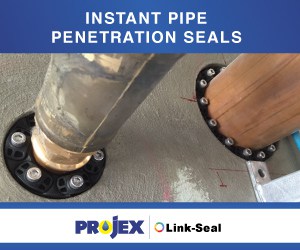Essential water services will be more easily accessible to thousands of South Australians living with a disability or medical condition as part of an Australian industry-leading program being implemented by SA Water.
SA Water’s Wider World initiative uses universal design principles to deliver improved water services to benefit all of its 1.7 million customers, including simplified water bills, meter reading help, and eventually, bill support for customers with high needs.

SA Water’s General Manager Customer Delivery, Kerry Rowlands.
According to data from the Australian Bureau of Statistics, around 21 per cent of South Australians live with a disability, with a further ten per cent providing informal assistance and 3.4 per cent acting as primary caregivers.
“I think it’s fair to say that it was probably a little bit of a blind spot for us as an organisation in terms of the service offering that we have for all of our customers,” SA Water’s General Manager Customer Delivery, Kerry Rowlands, said.
“Having met with our high-needs customers at a South Australian Council of Social Services (SACOSS) event in 2018, we realised that there were opportunities for both SA Water and the wider water industry to provide more inclusive services for customers living with daily challenges.
“One of these customers was Pamela, whose daughter Airlie had acquired a brain injury over 30 years ago. Pamela really eloquently described the challenges she had in looking after her daughter, and how important water was as part of that care.
“Trying to understand this kind of water use and infection control, how showers take so much longer because of strict hygiene requirements, was a real eye-opener. Airlie can have eight different carers in any one day, and they’re all washing their hands, they’re all using the toilet.
“If you’ve never walked a mile in someone else’s shoes, you often just don’t know what their life is like and therefore can’t appreciate the issues they face – and we needed to do that.”
Undertaking the initial research
SA Water has consulted with a number of organisations and community groups to better understand how it can make its services more accessible.
“Over the last 12 months, we have met with the Department of Human Services, SACOSS, and facilitated one-on-one meetings with our customers living with disabilities and their carers to help gain a full understanding of the challenges and experiences they face, and focus on areas where we could make changes over the coming years to help make their lives a little easier,” Ms Rowlands said.
“We carried out some targeted research with about a dozen people across the state and followed that up with a survey of around 50 members of our customer base living with a disability. An overwhelming number of responses highlighted a difficulty in reading their meter or high water usage as their biggest problems when it came to water.
“We also reached out to our own employee base and had 50 responses within the first 24 hours. These were employees that either lived with a disability, have a family member living with a disability or are carers.
“It was like they’d finally been asked and they were just so keen to share their views with us. We had people offering to come and have one-on-one conversations or more in-depth discussions with us.
“Through this, we created four distinct customer persona groups – customers with high needs, communication challenges, high information needs, or those needing help with tasks – which helped us map solutions and ways to enhance our services for customers.”
The wide-ranging nature of disability meant that it took SA Water several months to sort through the different information and make sense of it all.
“All of a sudden we had all this really, really useful information, which was almost overwhelming because there was so much of it. There’s so many different types of disability, and that in itself is a barrier to progress because people don’t understand,” Ms Rowlands said.
“I think that’s one of the reasons that something like this has never progressed very far within a utility, because disability is very complicated. How do you cater for somebody with this kind of disability, and then this disability, and this disability?
“The breakthrough moment was when we decided to follow the World Health Organisation model and not focus on disability. If you focus on the person and their needs, and what that combination requires, everything else is much easier. That’s when that universal design component actually becomes really powerful.”
Identifying different customer needs
The program has identified up to 15 potential initiatives or changes, with some already being implemented and others requiring investment over coming years, ranging from a language aide program for customers using Auslan and other alternate languages, as well as investigating ways to reduce the anxiety that many people with a disability face when answering the door.
Further changes include reducing the use of forms in customer interactions, which present a barrier for people with visual or cognitive disabilities, and offering more responses through email, which over 30 per cent of customers with communication challenges rely on instead of phone contact.
“Customers are truly at the heart of everything we do, and we want to make sure that anyone with any form of disability or accessibility issue is able to access our services, and that in turn, we are providing services as best we can that meet their needs,” Ms Rowlands said.
Chief Executive Officer of the South Australian Council of Social Services, Ross Womersley, said it is important that essential services fully understand the range of needs their customers are likely to have.
“This is a terrific example of what can happen when a retail business takes the time to begin to understand their customers and especially those customers who might have slightly different needs to the majority,” Mr Womersley said.
“This initiative from SA Water grew directly from our conference last year where we had a specific focus on the needs of people who live with disability, and we’re delighted that SA Water has gone on to try and deepen their relationships with and understanding of some of their customers who live with disability.”
Dave Woodmore was awarded best paper at OzWater 2019 for this project.
















